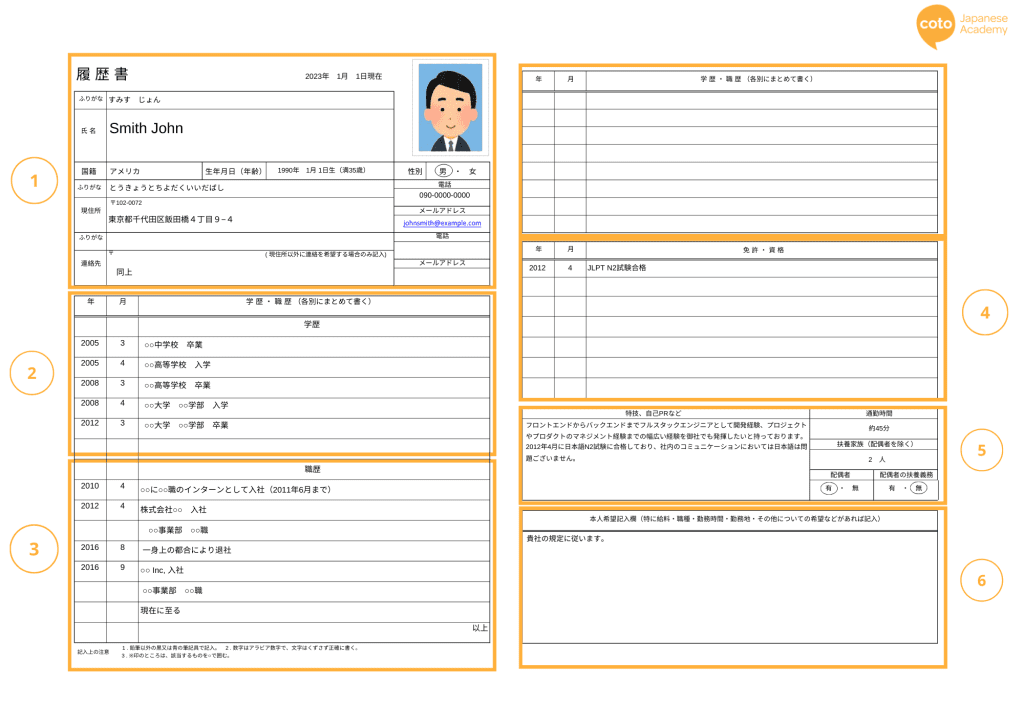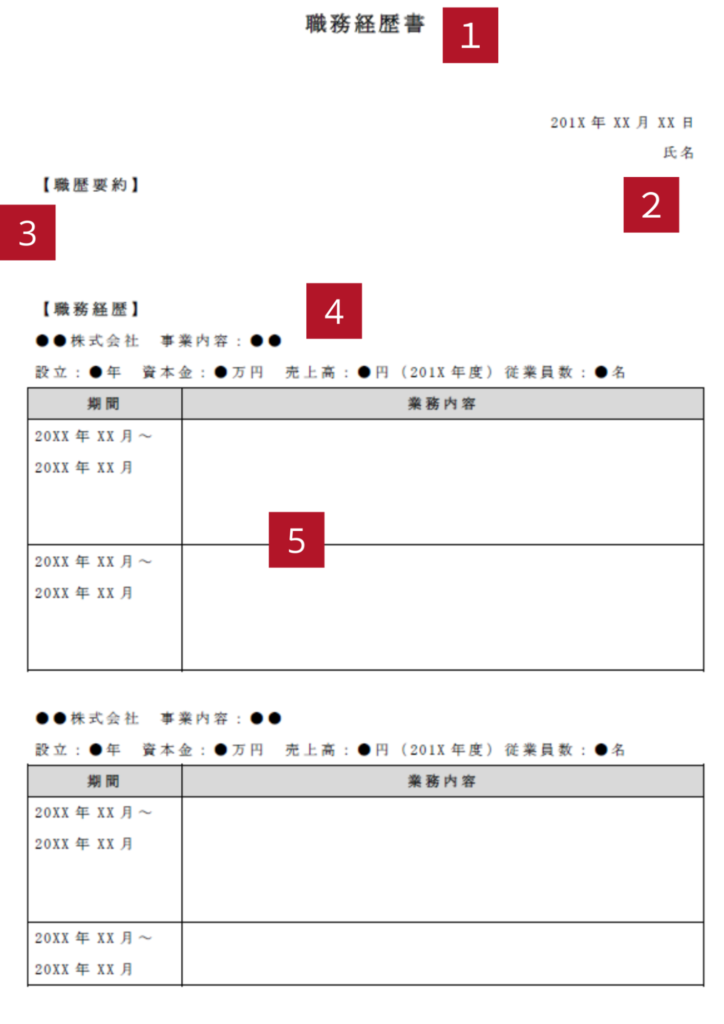Good news for you Japan job seekers! Japan is planning to hire more foreign employees by the year 2040. Get ready to secure your position with your outstanding Japan resume. Yes, you heard it right. Your resume is going to market your skills& expertise. Don't panic. This article will provide you with all the essentials of CV in Japan.
Create a Japanese resume online for free !
Don't have a Japan part-time job resume or full-time job resume. Don't worry. Build it now referring the sample resume in Japan.

Improve your existing Japanese curriculum vitae!
Do you already have a Japan CV which is getting rejected again & again? Don't worry we got you covered. The major reasons for rejections can be:
1.Not formatted according to resume format in Japan
2.Failed to incorporate ATS friendly keywords:
3.Including harmful buzzwords

What are the two types of CV format in Japan?
1.Rirekisho : Job seeker’s personal story( Similar to biodata in Japan)
2. Shokumu-keirekisho : Job seeker’s professional story
In these resume format Japan , Shokumu-keirekisho is similar to English CV format. But Rirekisho is different from English CV.
| Info | Rirekisho | English CV |
|---|---|---|
| Photograph | Included | Optional |
| Age, Date of Birth, Gender, Marital status | Included | Not included |
| Work experience, responsibilities and achievements | Not included | Included |
| Information about the size of the company and size of department in experience section | Included | Not included |
| Focus | Personality and character | Qualification and accomplishments |
| Complexity | More | Less |
Difference between both CV format -Japan
| Criteria | Shokumu-keirekisho | Rirekisho |
|---|---|---|
| Information focus | Work experience & professional history | Personality |
| Company type | Modern | Traditional |
| Strict template | No | Yes |
| Standardization | No | Yes |
| Tile & bullet points | Yes | No |
| Information | Detailed | Basic |
Let us explore more about these two Japan CV formats:
1.Rirekisho – Japan Resume format
- It is similar to your biodata in Japan. Include your details in this Japan CV form.
| Personal information | Name, Gender, Mobile number, Email,Address, Date of Birth, Submission date, Photo |
| Academic/ work history | Academic: Two most recent graduations Work history: Mention start date,End date, Department, Position and Reason for leaving the company |
| Licenses& Qualifications | Language certifications, licenses and qualifications with recognized titles. |
| Self-promotion and reasons for applications | Internships, unique skills, passion for the job and reasons for applying job using few sentences, commuting time, dependants. |
| Peronal requests | Salary expectations, your comfortabe working time, your available interview time slots. |
Rirekisho: Japan resume sample information
Personal Information :
- Follow the Japanese date format (Year, month, date), you can also mention your age in parentheses.
- Update the submission date at least every three months.
- Generally, photographs are mandatory in Japanese resumes.
- Attach a recent professional headshot with a plain background.
- Avoid photos with too much of accessories fancy hairstyles and beards.
Academic/ work history :
- State your academic and work history in reverse chronological order. Example: State your high school degree, then the university degree and finally your master's degree.
- Provide accurate information as it is important for your visa acquisition and joining procedures..
- Don't mention your internships or part-time jobs here.
- If you don't want to elaborate on the reasons for leaving, you can simply mention something like "personal reasons".
- If you are still working in the company, put it as "Current”.
License & Qualifications :
- If you have a driving license, include the details of it as it is relevant in Japan.
- Add recognized titles for the qualifications and licenses.
- Class A driver's license for commercial trucks
Personal requests :
- There are no hard and fast rules about the information needed to be mentioned here.
- Here you can state your expectations or any special requests regarding the job.
- If you don't have anything, you can leave it blank or state "I'll comply with company regulations."
Self-promotion& reasons for application :
- You can promote yourself self with this section.
- Try to use respectful Japanese language.
- Include the commute time from home to work: "About 45 minutes"
- If you haven't still moved to Japan yet. Keep it blank.
- Normally the family members supported by your income will be mentioned here.The spouse is not considered dependent even though she doesn't have her income.
- You are married and have 2 children, here number of dependents is
- If your children are earning, then they are also excluded from the dependents. In the above example, if your one child is working, your number of dependents will be 1.
- Also, you must mention whether your spouse is supported by your income.
2.Shokumukeirekisho – Japan Resume format
It is not like your Japanese bio data. Here you have to include your professional details.
Shokumukeirekisho : Japan resume sample information
Career summary :
- "I have 3 years of working experience in an Marketing agency as a sales " As a team leader, I provided training for about ten mid-level employees annually, I also acted as the administrative representative in regular meetings with senior management."
Skills :
- Technical skills: Java, Power BI, C#
- Soft skills: Communication skills, Leadership
Work history :
- Use reverse chronological order here. (Where you can start from the most recent)
Example -:
- ABC Digital Marketing (January 2019 - Present)
- Position: Sales Manager
- Department: Sales
- Completed Project: Spearheaded successful marketing campaigns for major clients in the industry.
- No of Employees: 50
- Technologies Used: Google Analytics, SEO tools.
- Skills Developed: Strong customer service, and marketing strategy development.
Languages:
- English: Native level
- Japanese: Fluent (JLPT N1)
- Spanish: Business level
- You can also include your IELTS scores here.
Personal projects and miscellaneous activities:
- You can include the project title, your role, duties and responsibilities and skills acquired from the job.
Example -:
Digital Marketing Coordinator at TechPro Solutions (June 2017 - August 2019)
Project:- New Software Launch
- Developed and implemented digital marketing strategy
- Conducted market research.
- Implemented social media and email campaigns.
- Analysed campaign performance.
- Social media marketing
- Proficient in analytics.
- Strong project management.
Online/ social presence:
"As part of my professional career, I participate in industry discussions on Stack Overflow ( https://stackoverflow.com/users/123456 ) and present my coding projects on GitHub ( https://github.com/yourusername )" Additionally, I have a Medium blog ( https://medium.com/@yourname ) where I share my career thoughts."
Self-appeal:
"As a Digital Marketing Coordinator, I am expertise in Google Analytics, SEO optimization, and social media strategies. My experience fits your technical environment, and I am looking forward to boost [Company XYZ]'s online visibility and produce positive impact."
Career plan:(Optional)
I love creating exciting contents in digital platforms!" This position excites me because it fits my career aim of content writing. It's a great opportunity to kickstart my passion as my career!
How to incorporate ATS friendly keywords in your Japan CV?
- Japan gives more value to technology, so make sure to include the industry keywords.
- In rirekisho you may not have chance to include these words. However you can customize your CV with industry specific keywords in Shokumu-keirekisho.
- Incorporating action verbs will showcase your proficiency effectively.
- You can find these keywords from your job descriptions.
- But don't limit only to that.
- Most of the Japanese companies use Application Tracking Systems (ATS) to short list their candidates for the interview.
- ATS normally filter CVs through keyword searching. If you don't include sufficient keywords. Mostly your CV will be rejected.
- Therefore try to include these keywords as much as possible.
- You can include these keywords when describing your: Self-promotion and reason for application, Career summary, Work history, Personal Projects and Miscellaneous Activities.
Useful action verbs:
| Coordinated | Developed |
| Accomplished | Administrated |
| Established | Handled |

How to identify the harmful buzzwords in your Japan CV ?
- Buzzwords have the power to make or break your Japan CV. There are two types of buzzwords. The good ones will make your CV work! Bad ones will break your CV!
- But the actual problem is identifying these good & bad ones. Because you never believe these words as buzzwords.
Bad CV buzzwords
| Proactive | Team player |
| Results-oriented | Self-development |
- Yes, you are reading the bad CV buzzwords. These words have became meaningless today.
- Over using them will decrease the originality of your CV.
- Make sure to check for these harmful buzzwords when you are writing your self- appeal and career plan.

You have learnt the essentials of Japan resume! Now you are ready to create your Japan resume online or improve your existing resume!
Sample resume for Japan
1.Rirekisho- Japan resume template Example

2.Shokumukeirekisho-Japan CV template Example

FAQs
1.Do I need to write curriculum vitae in Japanese for Japan jobs?
- Some traditional companies prefer handwritten resumes. However modern Japanese companies don't ask for handwritten resumes.
2.What is the best Japanese font for a resume?
- Most of the Japanese companies prefer Mincho typeface which is also called as Ming or Song.
3.What documents I need to work in Japan?
- Working visa
- Proficiency in Japanese
- University degree& work experience
- A CV prepared according to Japan resume format
- Passed the interview
4.What are the two writing styles in Japanese?
- The two writing styles in Japanese are Hiragana and katakana.
5.What is Furigana means in Japanese?
- Furigana is a reading aid for Japanese, basically it helps t o pronounce Japanese.
6.How can I write a resume for Japan?
- Download the proper Japan CV format.
- Edit it according to you.
- Incorporate ATS-friendly keywords.
- Scan for buzzwords.
- Proofread your CV.
There is no standard resume format for all the countries. Every countries expect a CV that is formatted according to their specific format. Using your UAE CV or Netherlands CV for Japan won't work. Make sure to follow the right resume format for reference.


